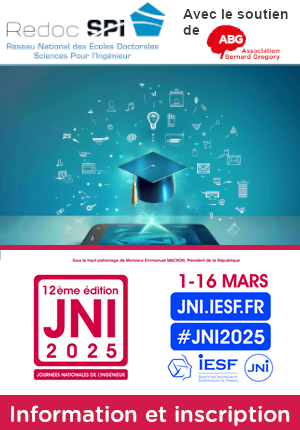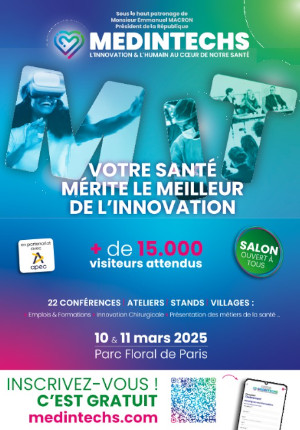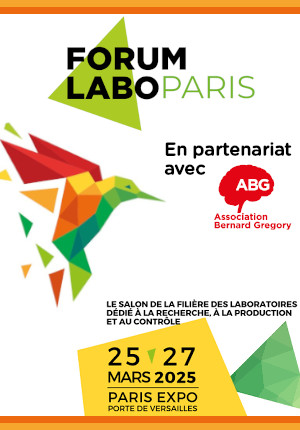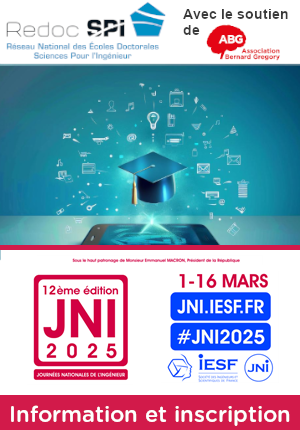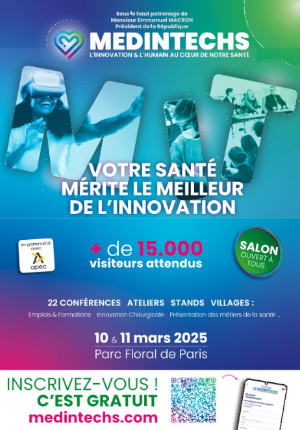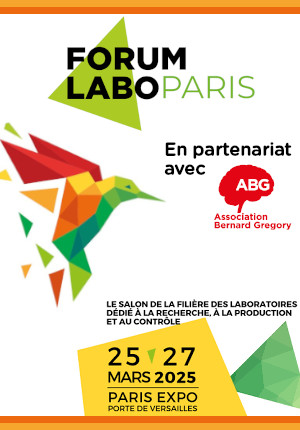Le diagnostic en réparation communautaire: quelles clés pour l'intégration en conception de systèmes techniques? // Diagnostic in community-based repair : which keys for integration into t technical systems design?
|
ABG-128736
ADUM-61455 |
Thesis topic | |
| 2025-02-19 | Public funding alone (i.e. government, region, European, international organization research grant) |
Université Grenoble Alpes
GRENOBLE Cedex 1 - France
Le diagnostic en réparation communautaire: quelles clés pour l'intégration en conception de systèmes techniques? // Diagnostic in community-based repair : which keys for integration into t technical systems design?
- Electronics
eco-conception, Réparation, réseau collaboratifs, economie circulaire
eco-design, Repair, network collaboration, circular economy
eco-design, Repair, network collaboration, circular economy
Topic description
Ce projet de recherche explore le rôle du diagnostic dans la réparation communautaire, en particulier au sein des Repair Cafés. La réparation débute toujours par une phase de diagnostic, essentielle mais souvent entravée par des obstacles techniques et cognitifs. L'étude vise à analyser les stratégies utilisées par les réparateurs amateurs et professionnels pour identifier ces freins et proposer des solutions constructives favorisant un diagnostic plus efficace.
Une première phase analysera les difficultés rencontrées lors du diagnostic, notamment le manque de documentation et la complexité des objets techniques. Des méthodes d'observation participative et d'entretiens permettront d'identifier les heuristiques développées par les réparateurs. La deuxième phase se concentrera sur l'amélioration du processus de réparation, via des outils numériques tels que la réalité augmentée, et la formalisation de réseau épistémiques facilitant l'accès aux informations techniques et leur transmission.
L'étude débouchera sur une proposition de recommandations aux concepteurs pour intégrer la réparabilité dès la phase de conception des produits, enrichissant ainsi l'écosystème de réparation en favorisant une approche plus accessible et durable.
------------------------------------------------------------------------------------------------------------------------------------------------------------------------
------------------------------------------------------------------------------------------------------------------------------------------------------------------------
This research project explores the role of diagnosis in community repair, particularly within Repair Cafes. Repair always begins with a diagnostic phase, which is essential but often hampered by technical and cognitive obstacles. The aim of this study is to analyze the strategies used by amateur and professional repairers to identify these obstacles, and to propose constructive solutions for more effective diagnosis.
The first phase will analyze the difficulties encountered during diagnosis, in particular the lack of documentation and the complexity of technical objects. Participatory observation and interview methods will be used to identify the heuristics developed by repairers. The second phase will focus on improving the repair process, using digital tools such as augmented reality and the formalization of epistemic networks to facilitate access to and transmission of technical information.
The study will culminate in a proposal of recommendations to designers for integrating repairability right from the product design phase, thus enriching the repair ecosystem by promoting a more accessible and sustainable approach.
------------------------------------------------------------------------------------------------------------------------------------------------------------------------
------------------------------------------------------------------------------------------------------------------------------------------------------------------------
Début de la thèse : 01/10/2025
Une première phase analysera les difficultés rencontrées lors du diagnostic, notamment le manque de documentation et la complexité des objets techniques. Des méthodes d'observation participative et d'entretiens permettront d'identifier les heuristiques développées par les réparateurs. La deuxième phase se concentrera sur l'amélioration du processus de réparation, via des outils numériques tels que la réalité augmentée, et la formalisation de réseau épistémiques facilitant l'accès aux informations techniques et leur transmission.
L'étude débouchera sur une proposition de recommandations aux concepteurs pour intégrer la réparabilité dès la phase de conception des produits, enrichissant ainsi l'écosystème de réparation en favorisant une approche plus accessible et durable.
------------------------------------------------------------------------------------------------------------------------------------------------------------------------
------------------------------------------------------------------------------------------------------------------------------------------------------------------------
This research project explores the role of diagnosis in community repair, particularly within Repair Cafes. Repair always begins with a diagnostic phase, which is essential but often hampered by technical and cognitive obstacles. The aim of this study is to analyze the strategies used by amateur and professional repairers to identify these obstacles, and to propose constructive solutions for more effective diagnosis.
The first phase will analyze the difficulties encountered during diagnosis, in particular the lack of documentation and the complexity of technical objects. Participatory observation and interview methods will be used to identify the heuristics developed by repairers. The second phase will focus on improving the repair process, using digital tools such as augmented reality and the formalization of epistemic networks to facilitate access to and transmission of technical information.
The study will culminate in a proposal of recommendations to designers for integrating repairability right from the product design phase, thus enriching the repair ecosystem by promoting a more accessible and sustainable approach.
------------------------------------------------------------------------------------------------------------------------------------------------------------------------
------------------------------------------------------------------------------------------------------------------------------------------------------------------------
Début de la thèse : 01/10/2025
Funding category
Public funding alone (i.e. government, region, European, international organization research grant)
Funding further details
Concours pour un contrat doctoral
Presentation of host institution and host laboratory
Université Grenoble Alpes
Institution awarding doctoral degree
Université Grenoble Alpes
Graduate school
510 I-MEP² - Ingénierie - Matériaux, Mécanique, Environnement, Energétique, Procédés, Production
Candidate's profile
Vous êtes diplômé(e) de master ou ingénieur et possédez des compétences en conception et analyse de systèmes techniques. Les approches d'enquêtes, interview, recherche-action et les méthodes expérimentales impliquant l'humain et des technologies du numérique vous intéressent. Au-delà d'une appétence certaine pour les systèmes techniques (mécanique et éventuellement électrique/électronique) vous pratiquez occasionnellement ou régulièrement la réparation. Vous avez des bases en informatique et maîtrisez les rudiments du codage dans des langages courants (Python, C…). Vous êtes motivés par les démarches d'ingénierie frugales et souhaitez œuvrer dans un contexte de transformation de la société. Enfin, curieux et volontaire, vous disposez d'excellentes compétences en communication orale et écrite, tant en français qu'en anglais, et avez le goût du travail en équipe avec des partenaires scientifiques et économiques.
You have a Master's degree or an engineering degree and skills in the design and analysis of technical systems. You are interested in surveys, interviews, action research and experimental methods involving humans and digital technologies. In addition to a definite affinity for technical systems (mechanical and possibly electrical/electronic), you occasionally or regularly carry out repairs. You have a basic knowledge of computing and are familiar with the rudiments of coding in common languages (Python, C...). You are motivated by frugal engineering approaches and want to work in a context of social transformation. Last but not least, you have excellent oral and written communication skills in both French (you'll be immersed in repair associations where most of the volunteers are french speakers) and English, and a taste for teamwork with scientific and business partners.
You have a Master's degree or an engineering degree and skills in the design and analysis of technical systems. You are interested in surveys, interviews, action research and experimental methods involving humans and digital technologies. In addition to a definite affinity for technical systems (mechanical and possibly electrical/electronic), you occasionally or regularly carry out repairs. You have a basic knowledge of computing and are familiar with the rudiments of coding in common languages (Python, C...). You are motivated by frugal engineering approaches and want to work in a context of social transformation. Last but not least, you have excellent oral and written communication skills in both French (you'll be immersed in repair associations where most of the volunteers are french speakers) and English, and a taste for teamwork with scientific and business partners.
2025-05-12
Apply
Close
Vous avez déjà un compte ?
Nouvel utilisateur ?
More information about ABG?
Get ABG’s monthly newsletters including news, job offers, grants & fellowships and a selection of relevant events…
Discover our members
 Groupe AFNOR - Association française de normalisation
Groupe AFNOR - Association française de normalisation  CESI
CESI  PhDOOC
PhDOOC  ANRT
ANRT  Nokia Bell Labs France
Nokia Bell Labs France  Tecknowmetrix
Tecknowmetrix  Généthon
Généthon  ADEME
ADEME  Institut de Radioprotection et de Sureté Nucléaire - IRSN - Siège
Institut de Radioprotection et de Sureté Nucléaire - IRSN - Siège  CASDEN
CASDEN  ONERA - The French Aerospace Lab
ONERA - The French Aerospace Lab  Laboratoire National de Métrologie et d'Essais - LNE
Laboratoire National de Métrologie et d'Essais - LNE  Aérocentre, Pôle d'excellence régional
Aérocentre, Pôle d'excellence régional  TotalEnergies
TotalEnergies  Ifremer
Ifremer  MabDesign
MabDesign  MabDesign
MabDesign  Institut Sup'biotech de Paris
Institut Sup'biotech de Paris  SUEZ
SUEZ



